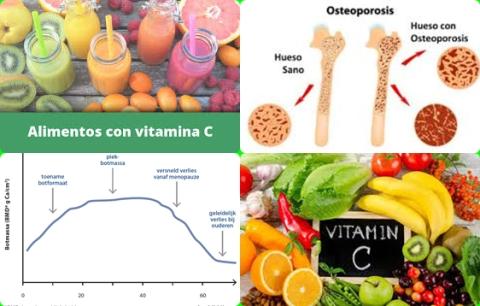
Objectives:
Several epidemiological studies have been performed to evaluate the association of dietary intake of vitamin C-oriented foods (DIVCF) with risk of fracture and bone mineral density (BMD) loss, but the results remain controversial. Therefore, this review article has been conducted.
Does dietary intake of vitamin C-oriented foods decrease risk of fracture and bone mineral density loss?
Study design:
This review article included 4 cohort studies, 11 case-control studies and 2 cross-sectional studies with a total of 19,484 subjects.
The studies received a quality score of ≥5, indicating that the methodological quality of the studies was generally good.
No evidence of publication bias was found in the evaluation of dietary intake of vitamin C-oriented foods and the risk of hip fracture.
Results and conclusions:
The investigators found that the people with a higher dietary intake of vitamin C-oriented foods had a significantly 34% [RR = 0.66, 95% CI = 0.47 to 0.94, I2 = 79.5%, p = 0.000] lower risk of hip fracture.
The investigators found that the people with a higher dietary intake of vitamin C-oriented foods had a significantly 42% [RR = 0.58, 95% CI = 0.38 to 0.89] lower risk of hip fracture in case-control studies.
However, this reduced risk was not significant in cohort studies [RR = 0.92, 95% CI = 0.59 to 1.44].
The investigators found that the people with a higher dietary intake of vitamin C-oriented foods had a significantly 34% [RR = 0.66, 95% CI = 0.48 to 0.92] lower risk of osteoporosis.
The investigators found higher dietary intake of vitamin C-oriented foods was negatively associated with the risk of bone mineral density loss at the lumbar spine [pooled r = 0.15, 95% CI = 0.09 to 0.23] and at the femoral neck [pooled r = 0.20, 95% CI = 0.11 to 0.34].
The investigators concluded that higher dietary intake of vitamin C-oriented foods reduces the risk of hip fracture, osteoporosis and bone mineral density loss, suggesting that people should consume more vitamin C to decrease the risk of hip fracture, osteoporosis and bone mineral density loss, particularly lumbar spine and femoral neck.
Original title:
Can Dietary Intake of Vitamin C-Oriented Foods Reduce the Risk of Osteoporosis, Fracture, and BMD Loss? Systematic Review With Meta-Analyses of Recent Studies by Zeng LF, Luo MH, […], Liu J.
Link:
https://www.ncbi.nlm.nih.gov/pmc/articles/PMC7008177/
Additional information of El Mondo:
Find more information/studies on vitamin C and elderly right here.